Question And Answer
Publications
Articles, publications, books, tools and multimedia features from the U.S. Institute of Peace provide the latest news, analysis, research findings, practitioner guides and reports, all related to the conflict zones and issues that are at the center of the Institute’s work to prevent and reduce violent conflict.
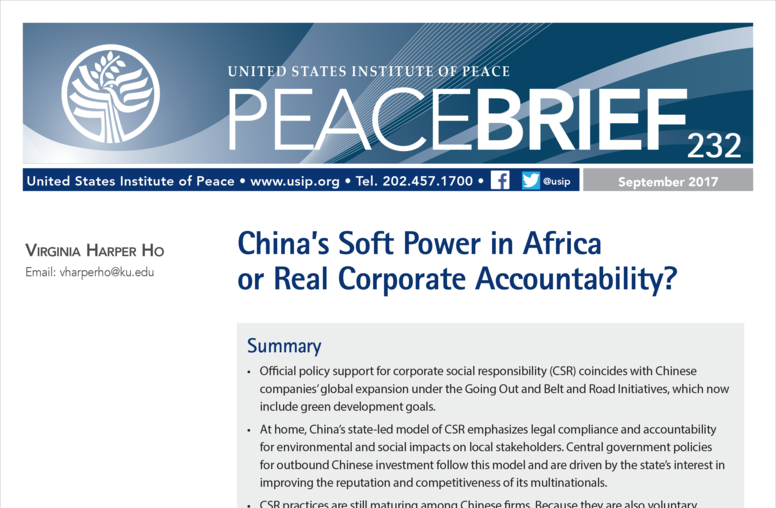
China’s Soft Power in Africa or Real Corporate Accountability?
China is the fourth largest foreign investor in Africa—more than three thousand Chinese firms operate there. An important but often overlooked aspect of this investment is the emergence of Beijing’s evolving corporate social responsibility policies and how they are applied, especially in Africa, which is what this Peace Brief explores.
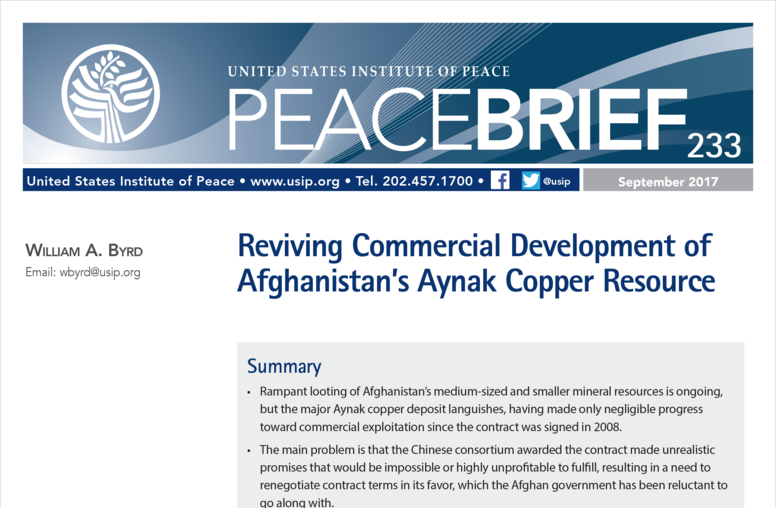
Reviving Commercial Development of Afghanistan’s Aynak Copper Resource
While other, smaller mineral resources are being rampantly looted, Afghanistan’s large Aynak copper deposit—worth upward $50 billion—has languished unexploited despite being contracted to a Chinese consortium nearly a decade ago. This Peace Brief seeks to understand what went wrong and explores options for breaking out of the current impasse. Resuscitating the development of Aynak, though challenging, would send a powerful signal of beneficial exploitation of Afghanistan’s mineral resources.
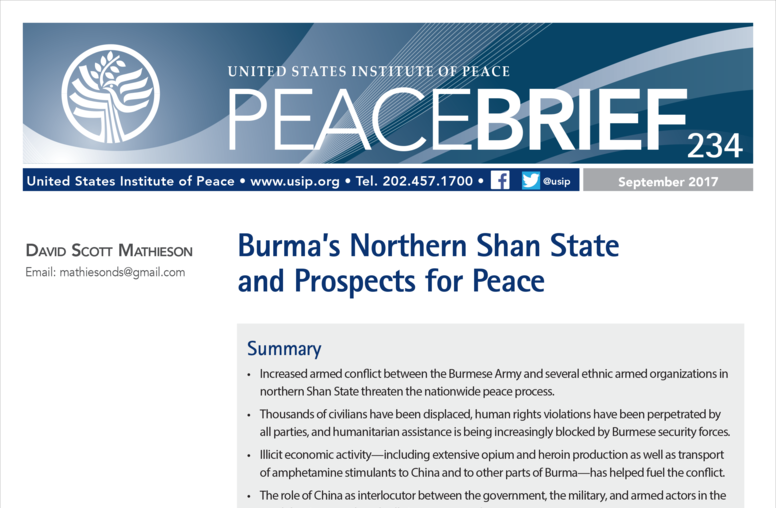
Burma’s Northern Shan State and Prospects for Peace
This Brief focuses on conflict dynamics to provide an overview of resurgent conflict patterns in northern Shan State over the past two years, outlines the armed groups involved, their competing interests, the human rights effects on the civilians in the area, and how the fighting has affected the nationwide ceasefire.
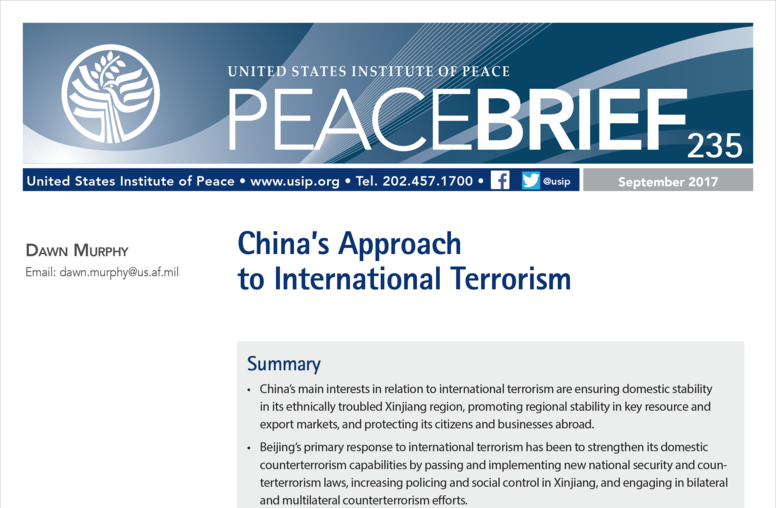
China’s Approach to International Terrorism
As China’s role in global political and economic affairs has expanded, so has its exposure to international and domestic terrorism. At the same time, it is constrained in its response by two long-held principles—nonintervention and noninterference. This Peace Brief discusses the threats to China, its response, and how these might affect its participation in global counterterrorism efforts.
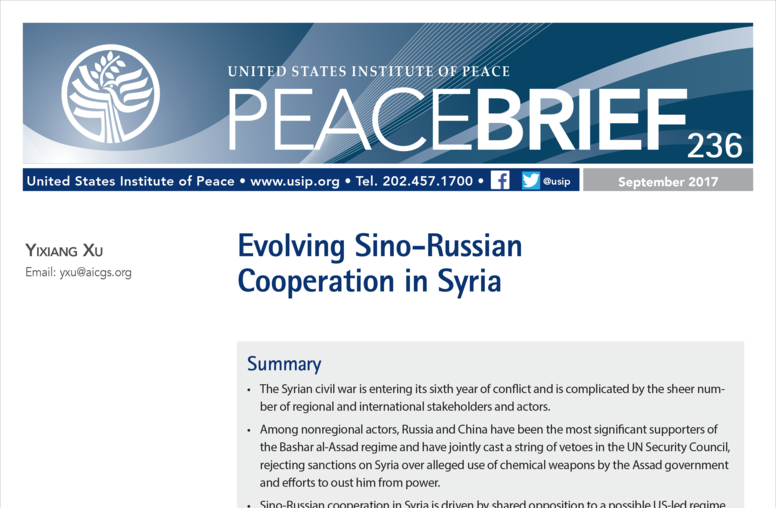
Evolving Sino-Russian Cooperation in Syria
Sino-Russian alignment in support of the Assad government in Syria is driven primarily by the mutual goal of preventing regime change and halting the spread of Islamic extremism. However, because Chinese strategic priorities lie elsewhere and Russia’s tactic of protracting military conflict in Syria contradicts Beijing’s long-term strategic interests, the prospect of future Sino-Russian cooperation in Syria is limited. This Peace Brief examines the forces driving this cooperation as well as its limits.
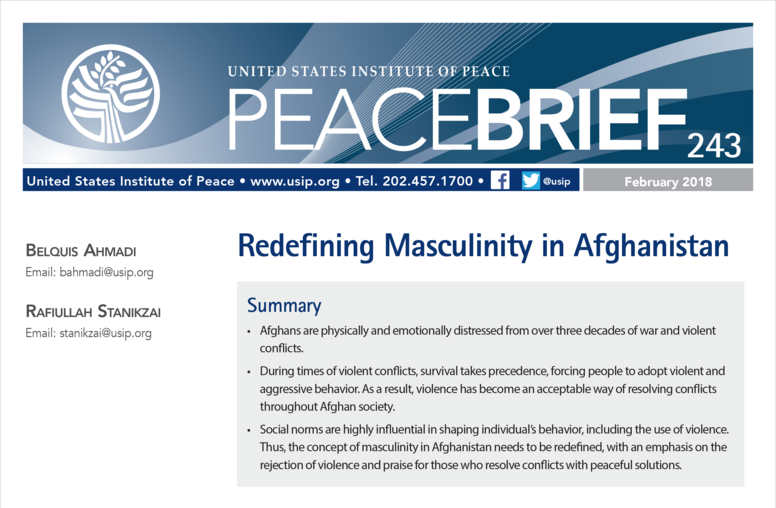
Redefining Masculinity in Afghanistan
Following more than three decades of political instability, violent conflicts, and foreign invasions, Afghanistan is home to nearly two generations that have grown up knowing only conflict and war. As a result, violent and aggressive behavior—particularly from young men—has become an accepted norm of...
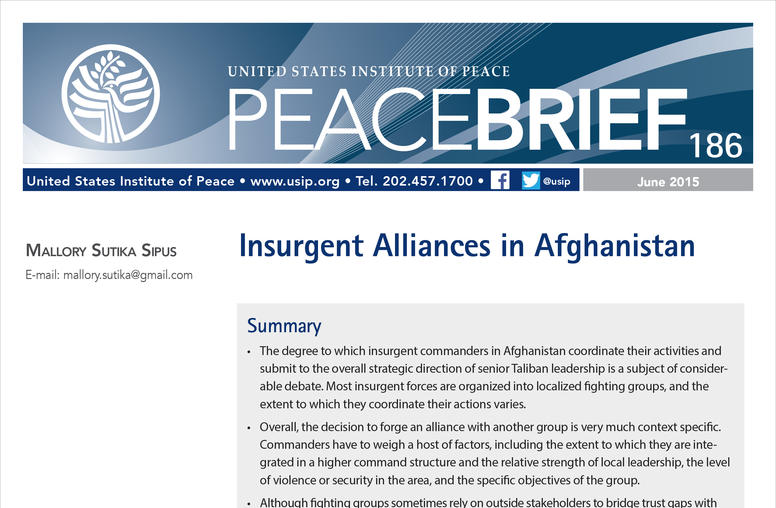
Insurgent Alliances in Afghanistan
One of the contributing factors to Afghanistan’s civil conflict has been the fluidity within military alliances at the sub-national level. This brief examines the circumstances of military alliances between insurgent commanders—what factors play into an alliance and how they are maintained, with assessments resulting from research from the Centre for Conflict and Peace Studies and supported by USIP.
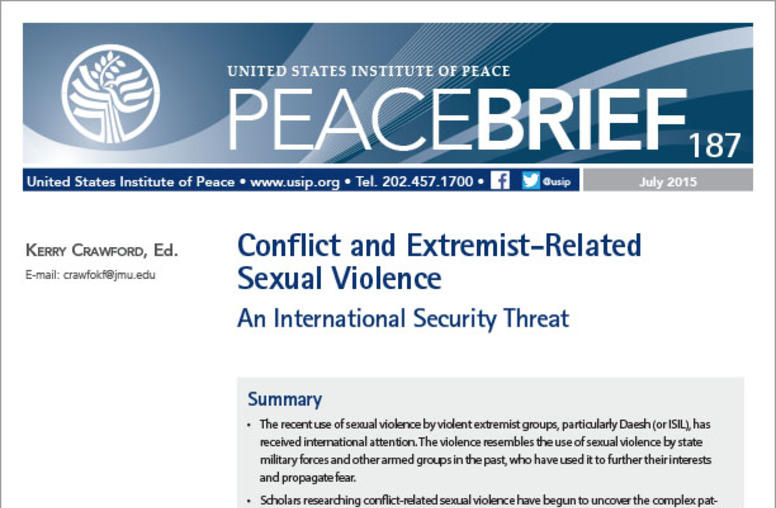
Conflict and Extremist-Related Sexual Violence
As extremist groups in the Middle East and North Africa perpetrate sexual violence against women as part of their campaigns to further their interests and propagate fear, scholars are reaching a deeper understanding of the ways in which sexual violence, before, during, and after conflict, arises from a complex pattern of political, military, social, and economic factors. International actors can draw from this work to craft responses that better assist survivors and hold perpetrators accounta...
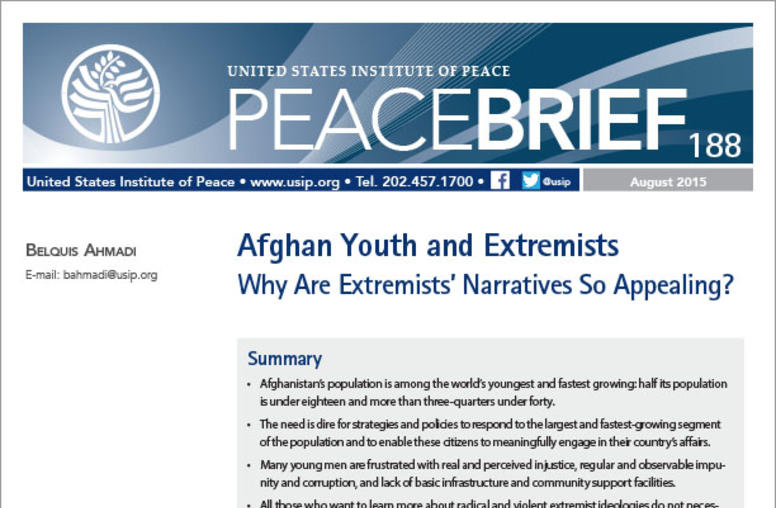
Afghan Youth and Extremists
Four decades of political instability, violent conflict, and socioeconomic crisis has had a devastating impact on Afghanistan and its citizens. As this Peace Brief explains, understanding the process of radicalization and the drivers of violent extremism is vital to designing effective counterstrategies.
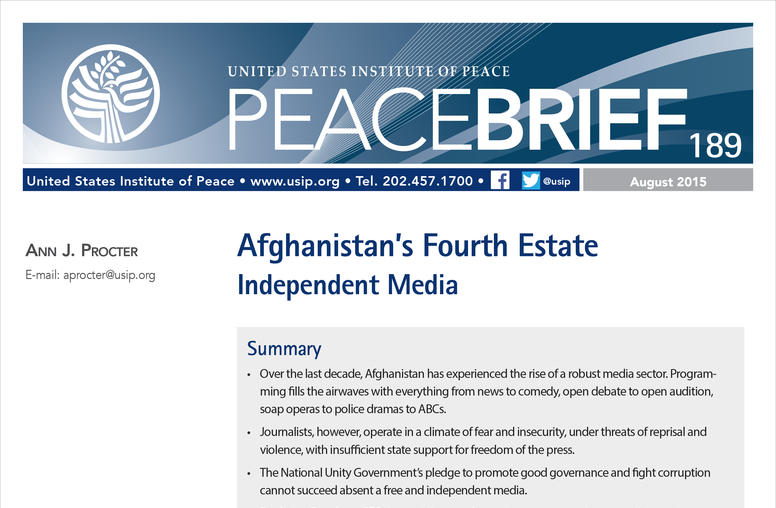
Afghanistan’s Fourth Estate: Independent Media
Afghanistan’s media have evolved at warp speed since the fall of the Taliban in 2001, yet being a journalist remains an extremely dangerous occupation, as many have been killed and still more threatened with violence if they persist in their work. The growth of Afghanistan’s democracy depends on a functioning media. This report examines the situation and offers paths forward to making Afghanistan safer for journalism.